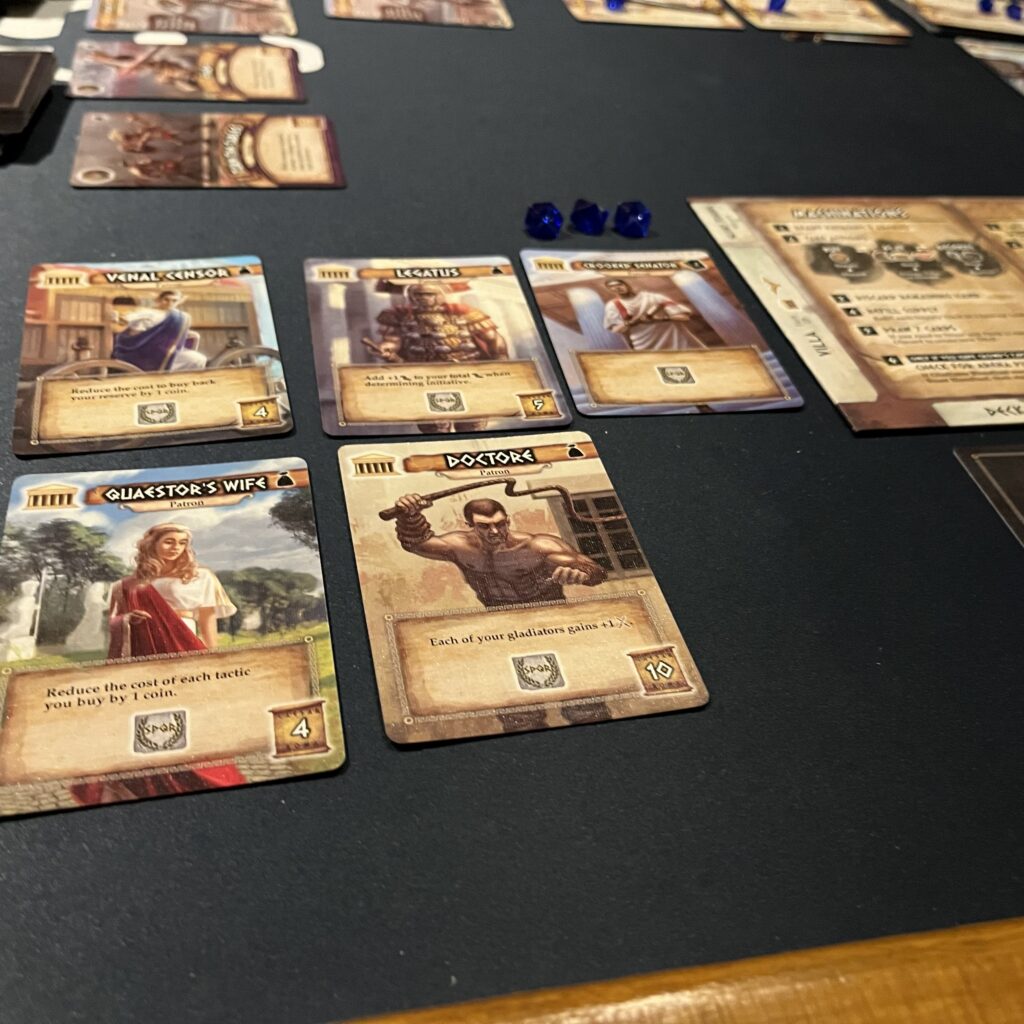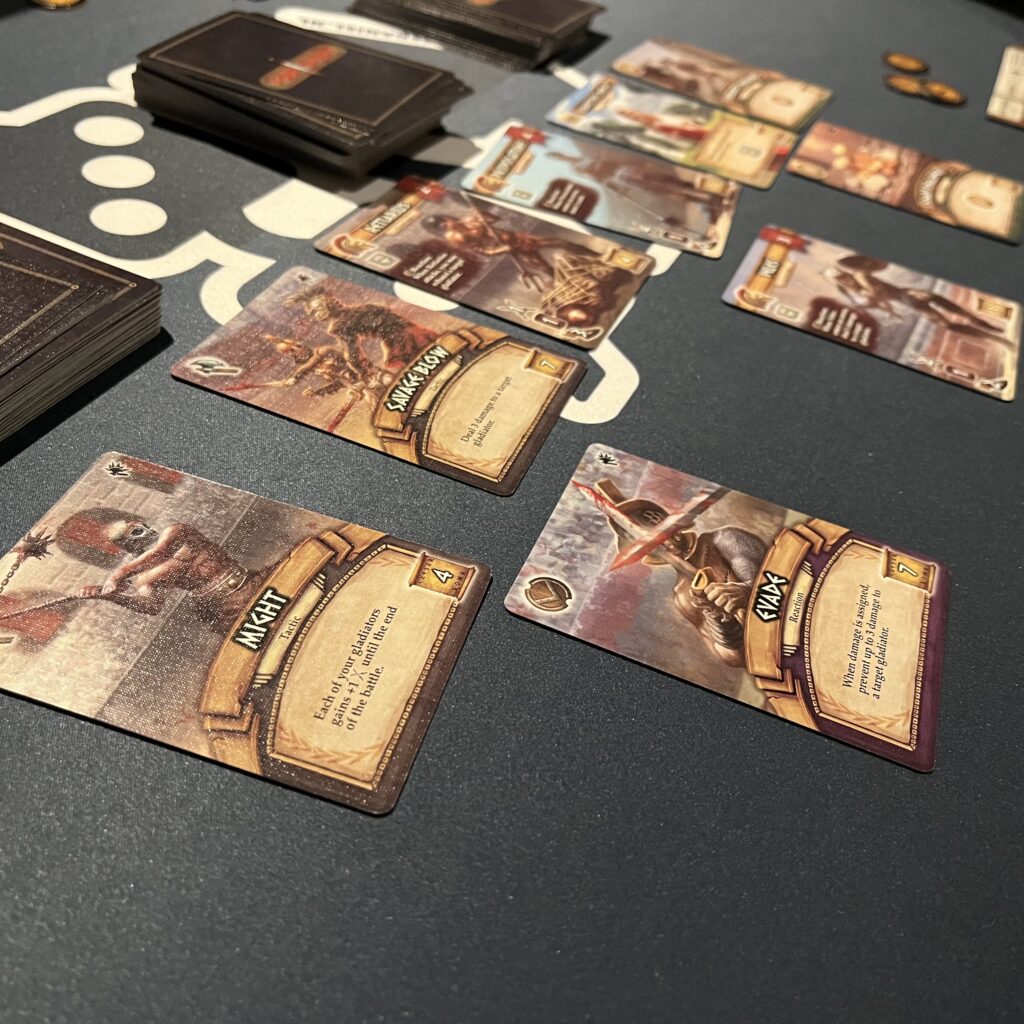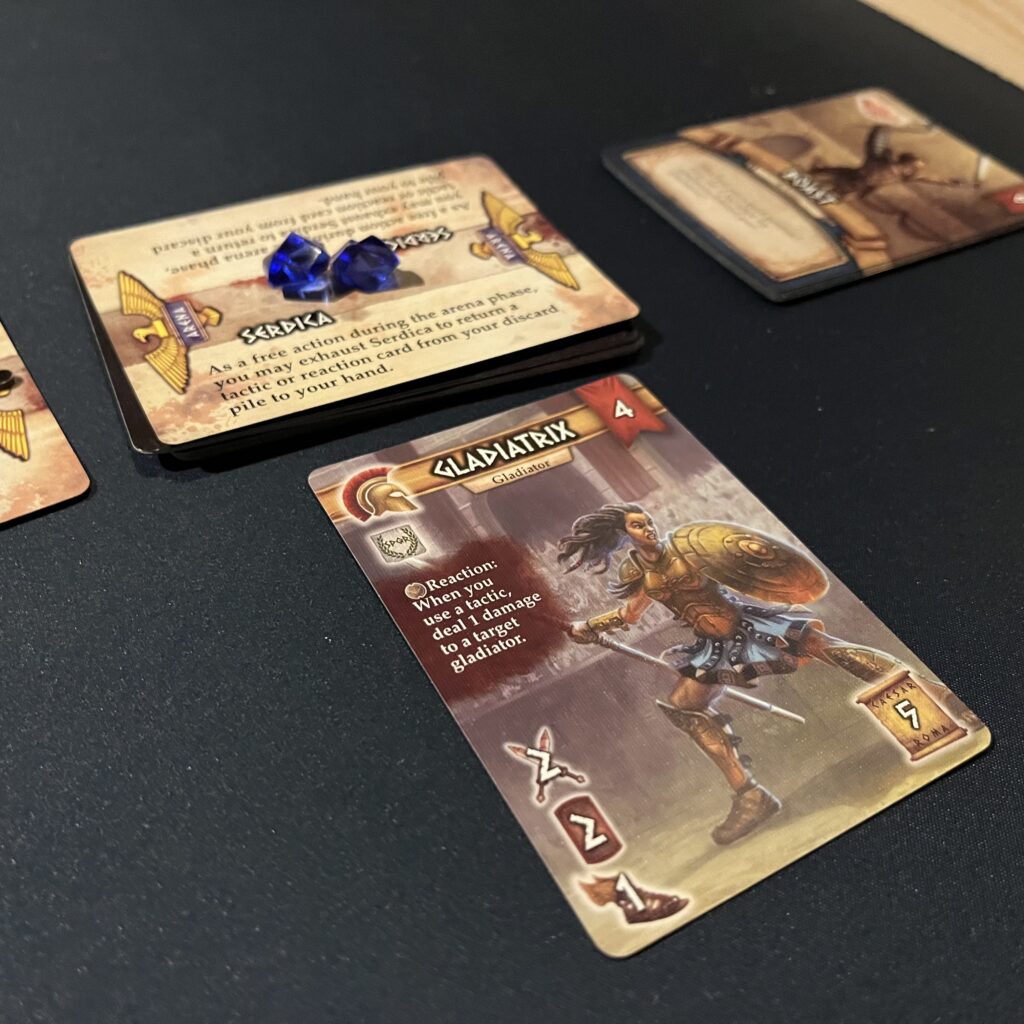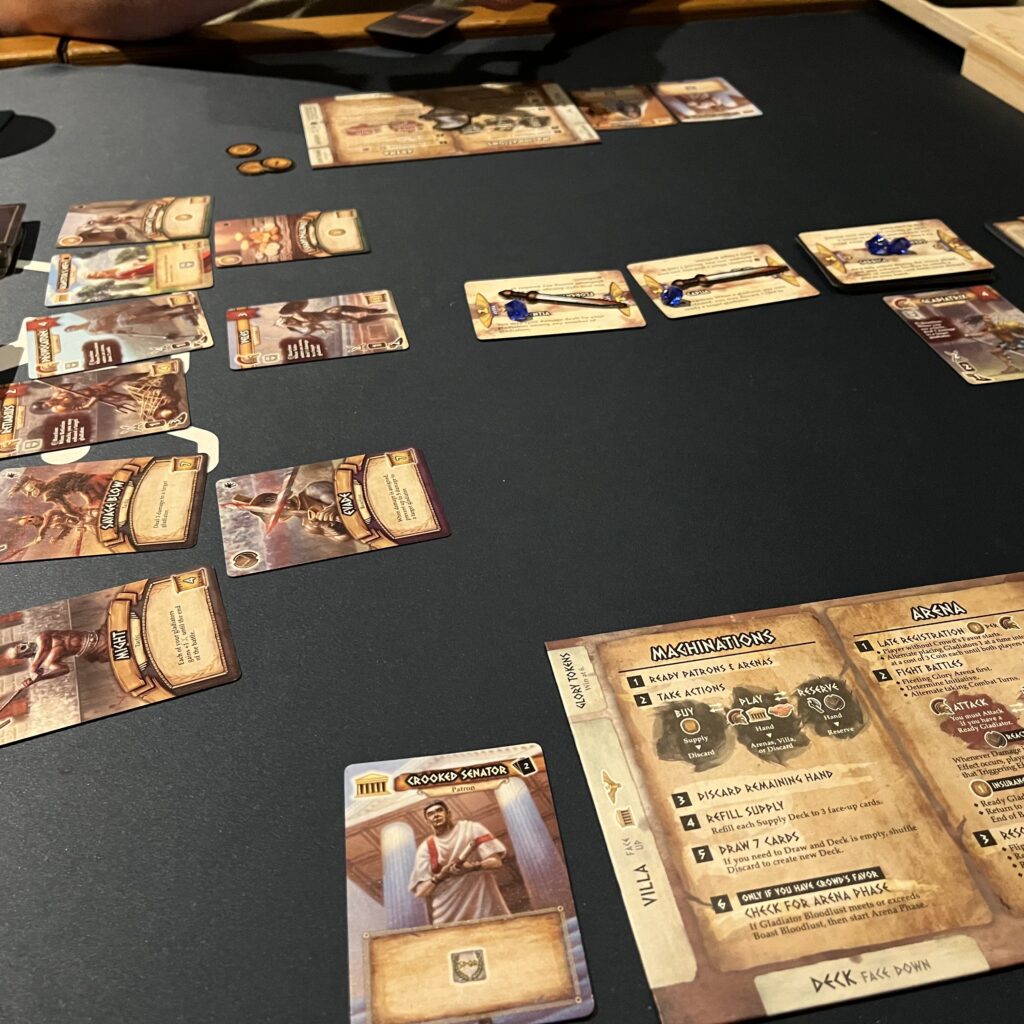“Are you not entertained!?” This now legendary quote is attributed to the character Maximus from the movie Gladiator. This movie, starring Russel Crowe, is about the former General Maximus who, due to a lot of backstabbing, must survive as a Gladiator with nothing more than revenge on his mind. The film is now 25 years old and a sequel is coming out soon. Gladiators are cool and the deckbuilder For Glory proves that once again. If you’re not already entertained by now, you will be while playing For Glory.

How often do you find yourself thinking about the Roman Empire? By now a dated meme as well. I sometimes think of the Roman Empire, but on the other hand, I am regularly involved in history and especially when I write pieces of text about board games and the Roman Empire is obviously a popular topic to include in a game and that makes sense. Based on all the stories, media and whatnot, they seem to be eventful and exciting times and long enough ago to look at this with somewhat romanticized and fictionalized glasses. Gladiators in particular really capture the imagination. Bloody battles to the death in vast arenas.
For Glory is an innovative deckbuilder for two players. Like a typical deckbuilder, players start collecting cards to improve their personal draw deck. Several cards are available in a trio of diverse markets, with three being placed face-up for each market.
An interesting element of this game is that the different types of cards have distinct game mechanics. Players can purchase new gladiators to fight in any of the three arenas. Players can also buy tactics or actions. Finally, players can buy influential patrons or income cards.


So players add new cards to their decks to deploy during their turns and these cards they must match, but what exactly does a turn look like? Players have 7 cards in hand and deploy them during their turn. With income, players generate coins that they can use to buy cards. Gladiators can assign them to arenas in the center of the table to use during battles. Players need influence to deploy gladiators and influence they gain by playing patrons in their villa. Actions and tactics players can use to influence the course of the game or a battle. Thus, unlike many deckbuilders, cards are played for a longer or sometimes even during the entire duration of the game, so not everything goes back into the deck at the end of a turn.
Each gladiator a player plays has a certain amount of bloodlust shown on the top right of the card. If the bloodlust on the current boast card is exceeded, a combat phase occurs at the end of a player’s turn with the crowd favor token. During battles, players can deploy more gladiators by paying coins and possibly take back tactics. During a battle, players take turns to play a gladiator and/or tactic. The player with the most agile gladiators gets to start. Each gladiator has an attack value and defense value. By winning an arena for themselves, players earn glory, and the player who achieves enough glory first wins For Glory!


For Glory, unlike many other deckbuilders, is quite interactive and also unique. Both are due to the end running phases during the game. A normal turn is a fairly common deckbuilder, but the battles throw the course of play significantly. The different types of cards also make For Glory mechanically surprising. For Glory particularly surprised us and this unique deckbuilder makes for an exciting fight to the death. Thumbs up!



